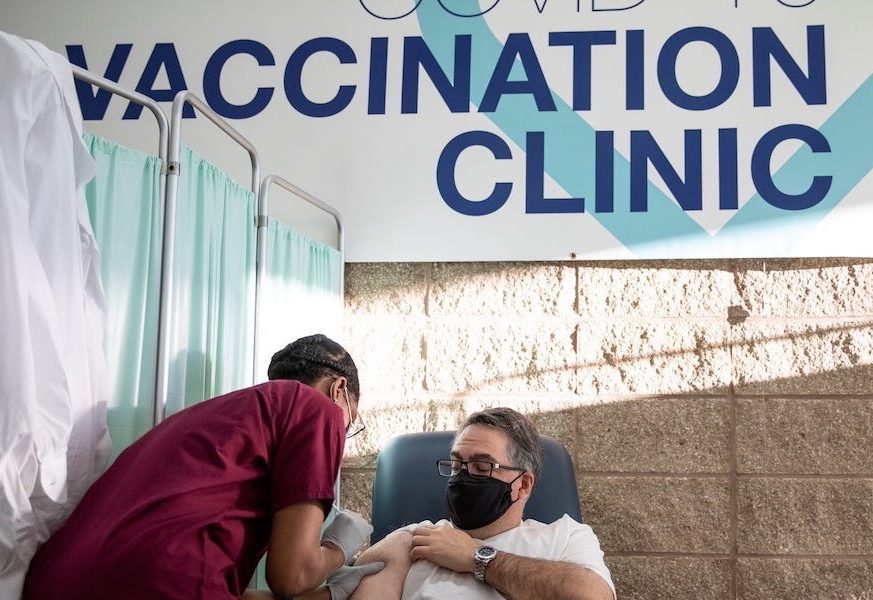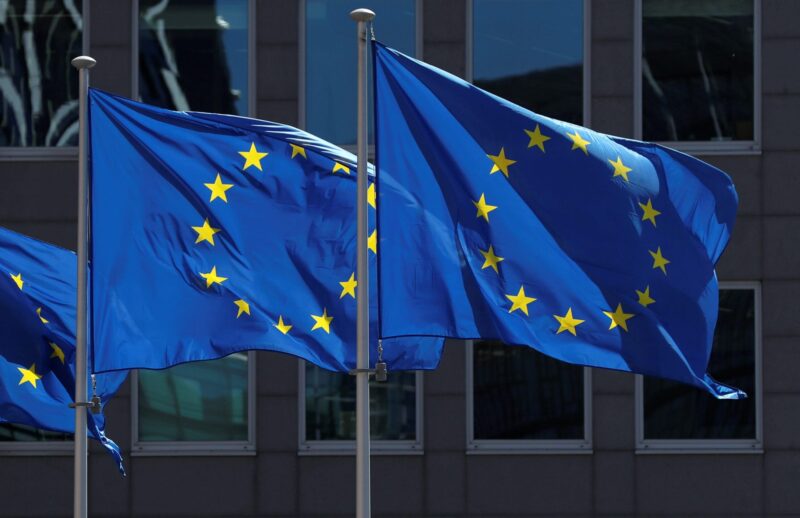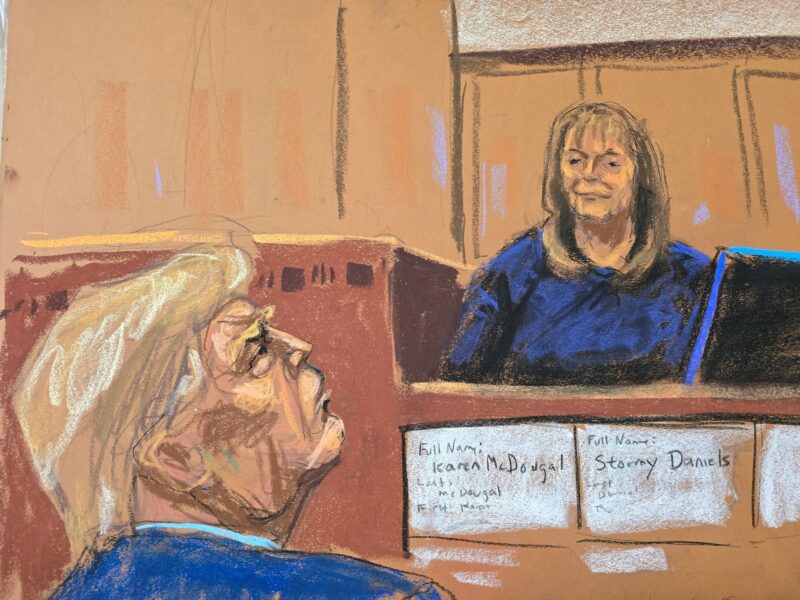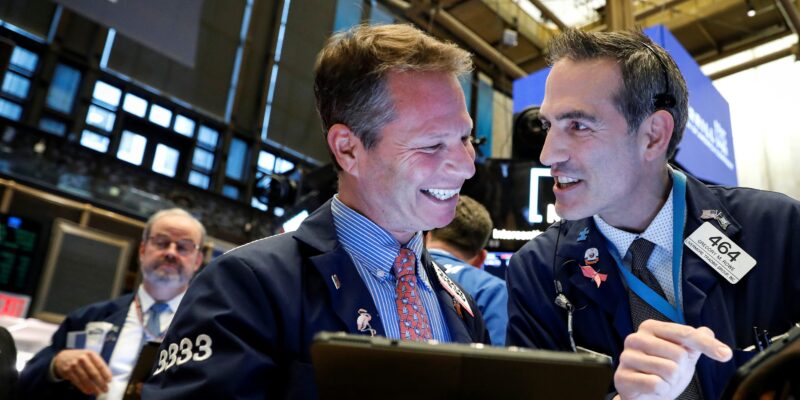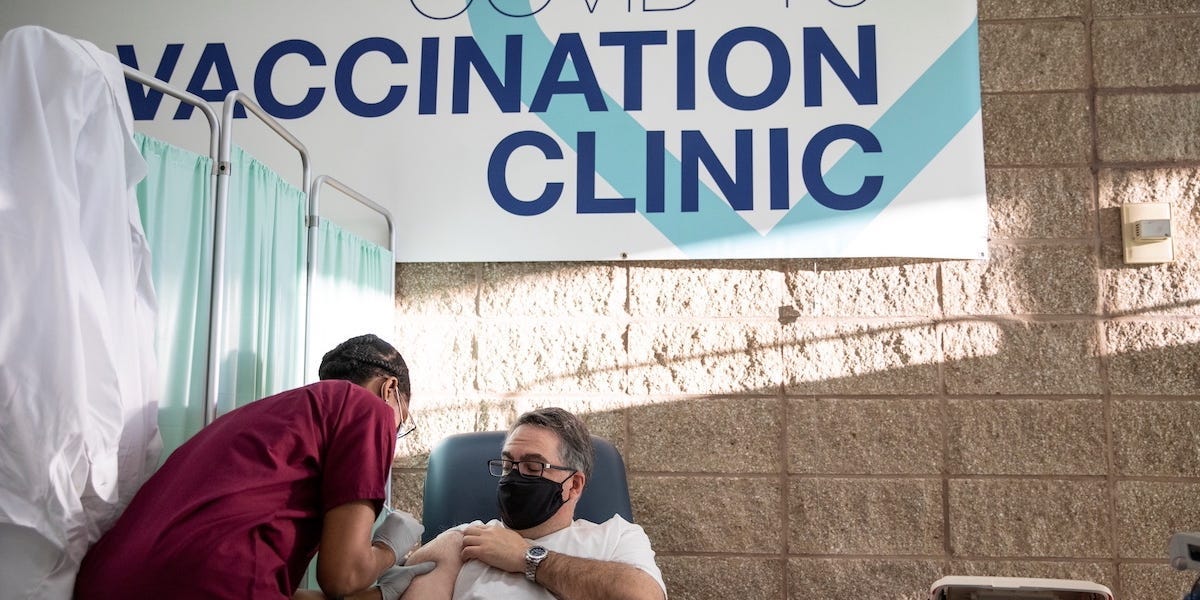
REUTERS/Leah Millis
- The World Health Organization’s chief scientist said there is not currently evidence that coronavirus vaccines prevent people from transmitting the virus to other people.
- Dr. Soumya Swaminathan told a Monday briefing there was not yet enough evidence from vaccine trials “to be confident that it’s going to prevent people from actually getting the infection and therefore being able to pass it on.”
- She added that people should still quarantine when travelling to countries with lower coronavirus transmission rates, even if they had received the vaccine.
- Vaccine researchers in the US are currently trying to determine whether vaccines can stop the virus spreading from person to person, or if they only prevent individuals from becoming ill with COVID-19.
- The answer is significant because it would determine whether asymptomatic people would continue infecting others.
- Visit Business Insider’s homepage for more stories.
The World Health Organization has warned that people who are vaccinated against the coronavirus will still need to quarantine when they travel because there is not enough evidence that vaccines prevent people from transmitting the virus.
The WHO’s chief scientist Dr. Soumya Swaminathan said on Monday that the agency had not established whether COVID-19 vaccines – which are already being administered across the US and in Europe – prevent people from getting the virus and passing it to others.
“At the moment I don’t believe we have the evidence of any of the vaccines to be confident that it’s going to prevent people from actually getting the infection and therefore being able to pass it on,” Swaminathan told a virtual briefing, in comments reported by Axios.
Swaminathan was responding to a question about whether vaccinated people should still be required to quarantine when travelling to countries with lower transmission rates.
“I think until we know more, we need to assume that people who have been vaccinated also need to take the same precautions until there is a certain level of herd immunity that’s been built in the population,” she said.
Business Insider reported last month that vaccine researchers in the US hope to determine whether vaccines can stop the virus spreading from person to person, or whether they simply prevent individuals from getting sick.
The answer would likely have a huge impact on the course of the pandemic because if vaccines prevented transmission, it would reduce the risk of asymptomatic carriers of the virus passing it onto others.
Dr. Larry Corey, the virologist who is drawing up the research proposal, said that the trial still needed funding as well as cooperation from the pharmaceutical companies which have developed effective vaccines.
Three COVID-19 vaccines have proven to be effective in trial results in preventing recipients from becoming ill or seriously ill.
Two of those, the Pfizer/BioNTech vaccine and the Moderna vaccine, are already being administered in the US and in Europe. Meanwhile, the vaccine developed by AstraZeneca and Oxford University is likely to receive approval in the UK within days, according to the Financial Times.
Moderna Chief Medical Officer Tal Zaks said last month he believes it is likely that the vaccine will prevent transmission, but warned that there was not yet "sufficient evidence" that was the case.
"When we start the deployment of this vaccine we will not have sufficient concrete data to prove that this vaccine reduces transmission," he told "Axios on HBO."
"I think it's important that we don't change behavior solely on the basis of vaccination."
